Filter by

Sociology in Germany :a history
This open access book traces the development of sociology in Germany from the late 19th century to the present day, providing a concise overview of the main actors, institutional processes, theories, methods, topics and controversies. Throughout the book, the author relates the discipline’s history to its historical, economic, political and cultural contexts. The book begins with sociology in…
- Edition
- -
- ISBN/ISSN
- 9783030718664
- Collation
- -
- Series Title
- -
- Call Number
- 301.0943 MOE s
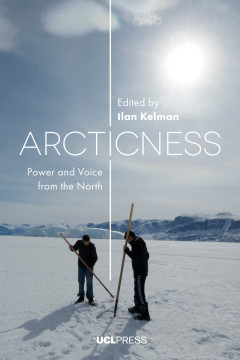
Arcticness :power and voice from the North
Climate change and globalisation are opening up the Arctic for exploitation by the world – or so we are told. But what about the views, interests and needs of the peoples who live in the region? This volume explores the opportunities and limitations in engaging with the Arctic under change, and the Arctic peoples experiencing the changes, socially and physically. With essays by both academic…
- Edition
- -
- ISBN/ISSN
- 9781787350137
- Collation
- xv, 204 p. ill;
- Series Title
- -
- Call Number
- 998 ARC I
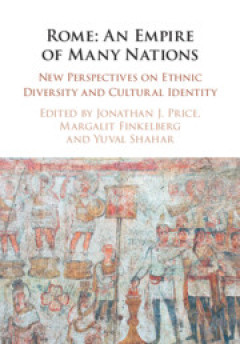
Rome:An Empire of Many Nations New Perspectives on Ethnic Diversity and Cult…
The center of gravity in Roman studies has shifted far from the upper echelons of government and administration in Rome or the Emperor's court to the provinces and the individual. The multi-disciplinary studies presented in this volume reflect the turn in Roman history to the identities of ethnic groups and even single individuals who lived in Rome's vast multinational empire. The purpose is le…
- Edition
- -
- ISBN/ISSN
- 9781009256193
- Collation
- xii, 428 p ; ill
- Series Title
- -
- Call Number
- 937.06 ROM J

From Digital Twins to Digital Selves and Beyond Engineering and Social Model…
This open access book aims at deepening the understanding of the relation between cyber-physical systems (CPSs) as socio-technical systems and their digital representations with intertwined artificial intelligence (AI). The authors describe why it is crucial for digital selves to be able to develop emotional behavior and why a humanity-inspired AI is necessary so that humans and humanoids can c…
- Edition
- -
- ISBN/ISSN
- 9783030964122
- Collation
- XVIII, 127 p ; ill
- Series Title
- -
- Call Number
- 006.301 FRO F
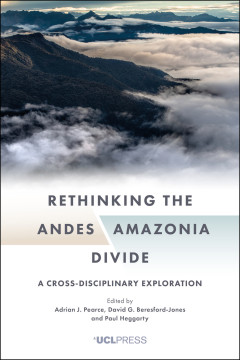
Rethinking the Andes-Amazonia divide :a cross disciplinary exploration
Nowhere on Earth is there an ecological transformation so swift and so extreme as between the snow-line of the high Andes and the tropical rainforest of Amazonia. The different disciplines that research the human past in South America have long tended to treat these two great subzones of the continent as self-contained enough to be taken independently of each other. Objections have repeatedly b…
- Edition
- -
- ISBN/ISSN
- 9781787357358
- Collation
- xxviii, 386 p. ill;
- Series Title
- -
- Call Number
- 980 RET A
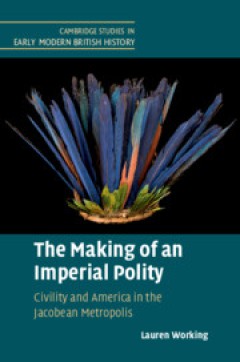
The Making of an Imperial Polity :Civility and America in the Jacobean Metrop…
Bringing to life the interaction between America, its peoples, and metropolitan gentlemen in early seventeenth-century England, this book argues that colonization did not just operate on the peripheries of the political realm, and confronts the entangled histories of colonialism and domestic status and governance. The Jacobean era is reframed as a definitive moment in which the civil self-prese…
- Edition
- -
- ISBN/ISSN
- 9781108625227
- Collation
- xiv, 270 p ; ill
- Series Title
- -
- Call Number
- 970.02 MAK L
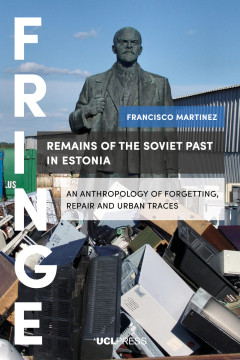
Remains of the Soviet past in Estonia :an anthropology of forgetting, repair …
What happens to legacies that do not find any continuation? In Estonia, a new generation that does not remember the socialist era and is open to global influences has grown up. As a result, the impact of the Soviet memory in people’s conventional values is losing its effective power, opening new opportunities for repair and revaluation of the past. Francisco Martinez brings together a numb…
- Edition
- -
- ISBN/ISSN
- 9781787353534
- Collation
- xix, 255 p. ill;
- Series Title
- -
- Call Number
- 974.98 REM F
 Computer Science, Information & General Works
Computer Science, Information & General Works  Philosophy & Psychology
Philosophy & Psychology  Religion
Religion  Social Sciences
Social Sciences  Language
Language  Pure Science
Pure Science  Applied Sciences
Applied Sciences  Art & Recreation
Art & Recreation  Literature
Literature  History & Geography
History & Geography